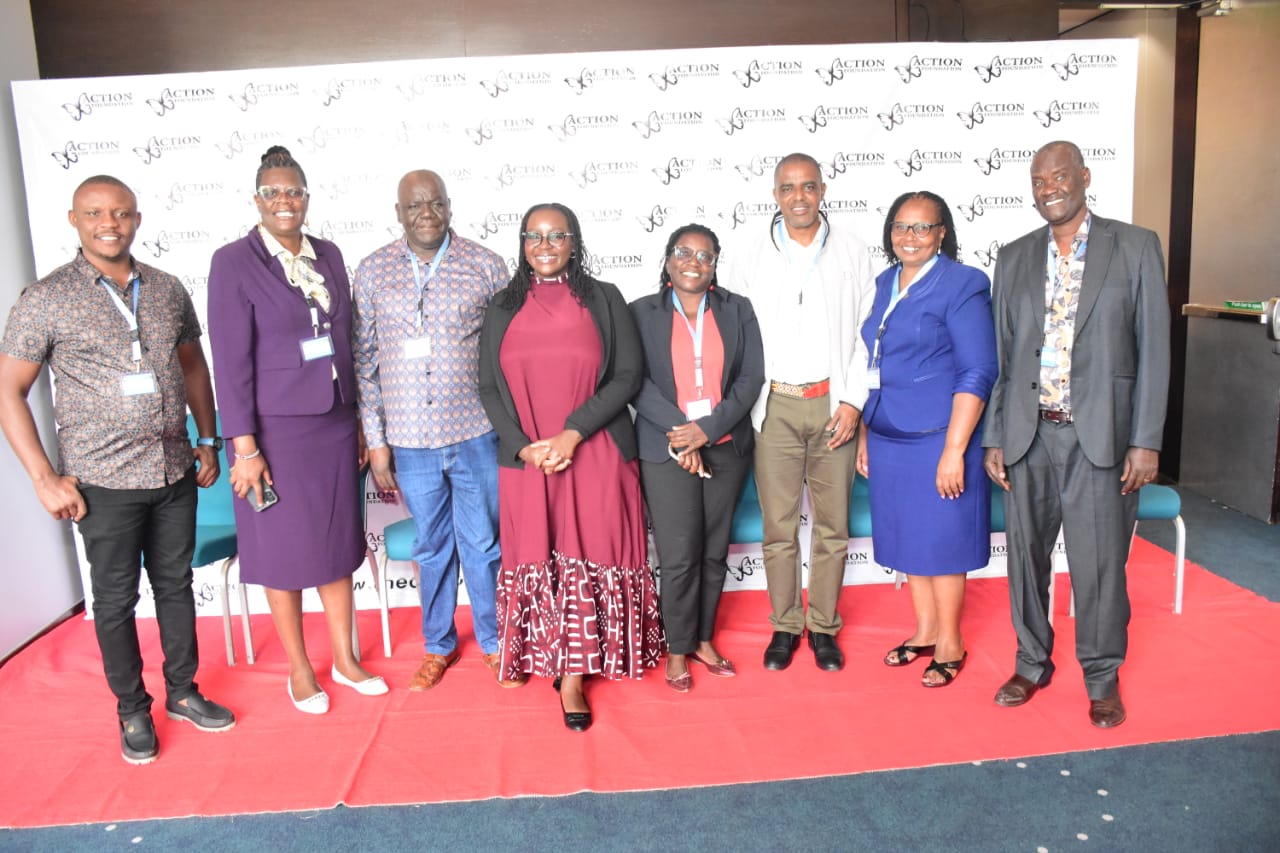Maria Omare, founder and executive director, The Action Foundation, with national and county representatives during the launch of DIECD in Nairobi. Photo/ Handout
Caregivers and parents of children with disabilities have called for all-inclusive and accessible care for children with disabilities, especially
during early development stages.
Christine Adisa, a mother of a five-year-old child with cerebral
palsy, highlighted the access problems her child faces due to structural and
financial constraints posed by the existing facilities and institutions.
Adisa complained about the competing needs between other
primary basic needs and education, which she believes that if her child is allowed to
pursue by subsidising the cost, would help her take care of herself in future.
She said the cost of medication for her child with cerebral palsy is high, and she has to prioritise it for the child’s wellbeing. She
also wants the child to have an education, which makes it difficult because it
can’t be financed by her small business of selling sweets.
“I am alone, raising a family with one special child, and they
all have to eat at the end of the day after school. It is so difficult for me
to provide the basic needs for the family and also to provide special education
for my child, who is disabled,” Adisa says.
She adds that there are limited special schools to cater
for the needs of her daughter, and the ones available are far away from her
reach and also expensive. “Most government schools have no special units for
people like my daughter,” she says, adding that if all public institutions had
special units for special children, it would somehow be cheaper and accessible
for people like her.
Kenneth Ongoro, on the other hand, shares similar problems
he faces while taking care of his daughter, who has special needs.
“At one time, I contemplated suicide because of the discrimination
I endured because of having a special child. I have not been able to enrol my
child at school yet he is at the school-going age, because of how expensive
education for special children is. The medication is expensive, creating competition with other needs like food and clothing. It makes it difficult for
me to know what to prioritise because all of them are equally important.”
Adisa and Kenneth spoke during the launch of the Disability-Inclusive
Early Childhood Development (DIECD) project by The Action Foundation (TAF) in
collaboration with the national and county governments.
The initiative aims to transform how Kenya supports young
children with disabilities. It seeks to ensure that more than 1.3 million children
aged 0-8 years, together with their caregivers, can access the health, nutrition,
education and protection services they deserve.
Maria Omare, founder and executive director of The Action
Foundation, said: “The disability-inclusive early childhood development project
represents a bold step toward transforming how Kenya supports children with disabilities.
For too long, these children and their families have faced barriers to health
care, education, nutrition, and protection.”
Stephen Ikonya, director of programmes at The Action Foundation, noted that for decades, children with disabilities have been left behind. Many have
struggled to access care, attend school or take part in activities other
children enjoy. He said the DIECD project plans to help change this reality by
making inclusion a permanent part of Kenya’s early childhood systems.
“The programme will strengthen rehabilitation and health
services, promote play-based learning and nutrition, train teachers to work inclusively,
empower caregivers and support county governments to plan and budget for
disability-inclusive services.”
Adisa and Kenneth hope that with the launch of the DIECD
project, their children will have equal chances of accessing services like other
children, that is not limited by their disability. “I will want to see my child
go to school, which I believe she can,” Adisa said after the launch.
